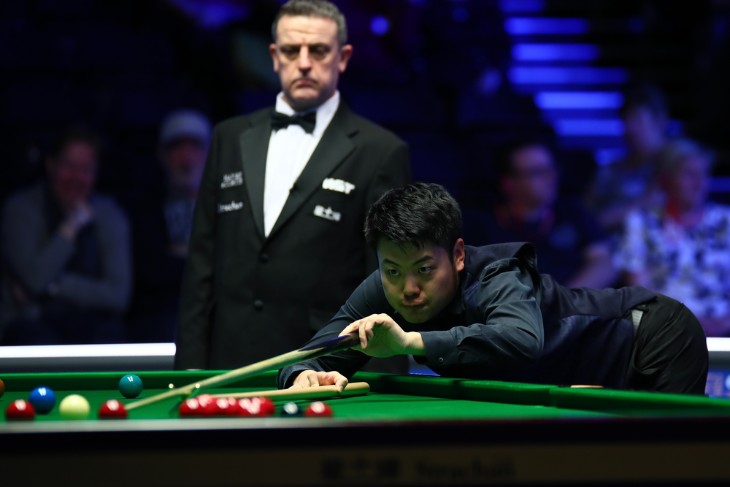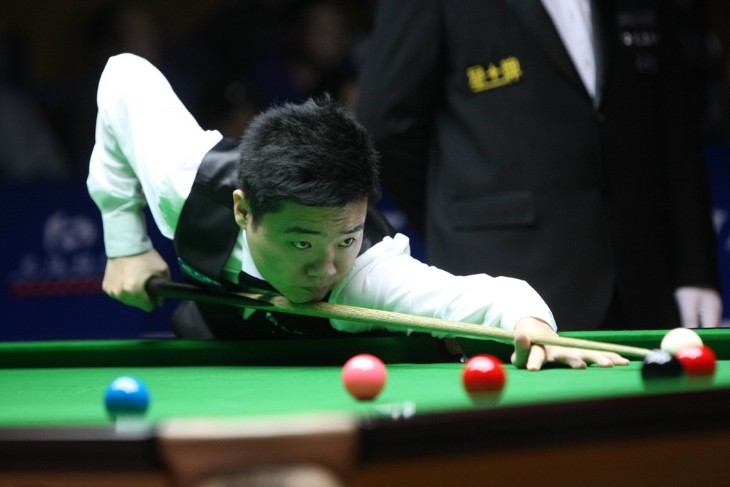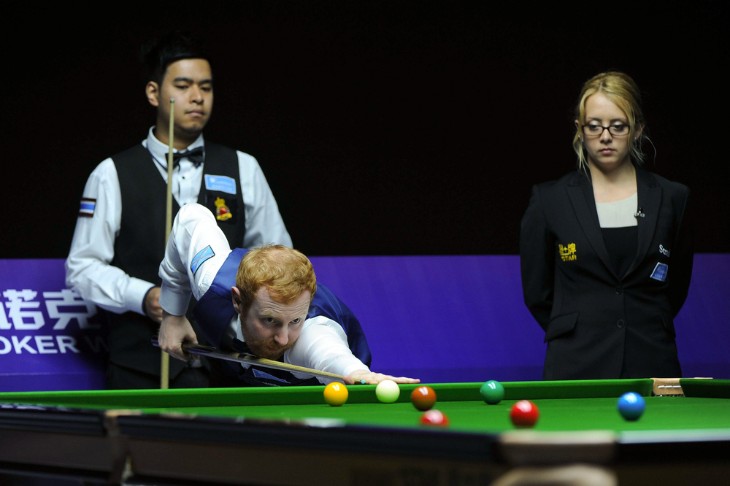Snooker, a game of precision, strategy, and skill, has captivated players and audiences around the world. It's a sport where success hinges not just on talent, but also on the quality of guidance one receives. This brings us to the pivotal role of snooker coaching.
In this comprehensive guide, we delve into why snooker coaching is crucial, the methods employed, and the best practices for effective coaching.
The Importance of Snooker Coaching: Nurturing Potential
Unlocking a Player's True Potential
In snooker, a coach plays a key role in unlocking a player's true potential. This process begins with a keen understanding of each player. Coaches observe players closely. They look at how a player holds the cue, takes a shot, and even how they plan their game. This deep look helps identify each player's unique strengths and areas for improvement.
The next step involves setting clear, achievable goals. These goals are not just about winning games. They're about mastering specific skills, improving shot precision, and building confidence. A coach sets these goals in a way that challenges the player but also keeps them motivated.
Effective coaching also means giving players the right tools and techniques. This includes teaching the correct stance, how to aim, and the best ways to strike the ball. These basics form the building blocks of a great snooker player. With these tools, players can improve their game step by step.
Feedback is crucial in this journey. Coaches provide constant, honest feedback. They tell players what they're doing right and what needs work. This feedback is always constructive. It's meant to guide players, not discourage them. Through this, players learn to see their mistakes as opportunities to grow.
Finally, a good coach instils resilience in players. Snooker is as much a mental game as it is physical. Players face pressure, especially in competitions. Coaches teach them how to stay calm, focus, and think clearly under pressure. This mental toughness is what often makes the difference in crucial moments of the game.
Building a Strong Foundation
Building a strong foundation in snooker is crucial. This starts with the basics. A good coach teaches the right way to hold the cue. They show how to stand for the best balance and control. They focus on the right way to aim and hit the ball. These basics are simple, but they are the core of every great snooker player.
Practice is key in building this foundation. Coaches set up regular practice sessions. They create routines that cover different shots and techniques. This practice is not just about repeating shots. It's about learning to do them the right way, every time.
Coaches also teach players about the rules of the game. Knowing the rules is important. It helps players understand how to play correctly and fairly. It also gives them a deeper insight into the game.
Another important part is learning to position the body correctly. The right posture helps in making accurate and powerful shots. Coaches work with players to perfect their stance. This involves adjusting how they stand, hold the cue, and move during a shot.
Coaches also focus on building a player's confidence. Confidence comes from knowing you're doing things right. When players feel confident, they play better. Coaches encourage players, celebrate their progress, and help them believe in their abilities.
Lastly, coaches instil discipline in players. Discipline means practising regularly, following routines, and staying focused. It's about commitment to the game and continuous improvement.

Methods of Snooker Coaching: Crafting Champions
Technical Skills Training
Technical skills are at the heart of snooker coaching. This training focuses on making each shot accurate and effective. Coaches start by teaching how to cue smoothly. They show how to move the cue straight and with the right speed. This helps in hitting the ball correctly.
Next, they work on aiming. Coaches teach how to line up shots. This includes seeing angles and planning where the ball will go. Good timing is key for making successful shots.
Positioning is another important skill. Coaches help players learn where to stand. They show how to move around the table smartly. This helps players get ready for their next shot.
Controlling the cue ball is a major part of technical training. Players learn how to make the cue ball spin and stop. This control lets them set up shots and play strategically.
Practice routines play a big role in technical training. Coaches set up drills that focus on different skills. These drills help players improve steadily. They make tough shots easier over time.
Coaches also teach players about shot selection. This means choosing the right shot at the right time. A good shot selection can win games. It involves thinking ahead and playing smart.
Finally, coaches focus on consistency. Doing the right thing once is good, but doing it every time is better. Consistent play comes from regular practice and good habits. Coaches help players develop these habits for consistent, reliable play.
Strategic Gameplay Development
Strategic gameplay is a big part of snooker. It's about thinking and planning. Coaches help players develop this skill. They start by teaching how to read the table. This means looking at the position of the balls and deciding the best shots to play. It's like a puzzle that players need to solve.
Planning breaks is another important strategy. Coaches show players how to make a series of successful shots. This planning helps players score more points in one turn. It's about making each shot in a way that sets up the next one.
Safety shots are a key strategy in snooker. These are shots that make it hard for the opponent to score. Coaches teach when and how to play these shots. Safety shots can turn the game in a player's favour.
Coaches also focus on teaching players to stay calm and think under pressure. Snooker games can be close and tense. Players need to stay cool and make smart choices, even when it's tough. This calm thinking is crucial in competitions.
Learning to adapt is part of strategic gameplay. Sometimes, plans don't work out. Coaches teach players how to change their strategy during a game. This flexibility can help players handle unexpected situations.
Finally, coaches encourage players to watch and learn from other players. This includes watching professional games and analyzing them. Players can learn new strategies and tricks this way.
Best Practices in Snooker Coaching: Ensuring Success
Individualised Coaching Plans
Individualised coaching plans are key in snooker. Every player is different. They have their style and skills. Coaches understand this. They make a unique plan for each player. This plan fits the player's needs and goals.
First, coaches assess the player's skills. They look at what the player does well and what needs improvement. This assessment helps in making a plan that focuses on the right areas.
The plan sets specific goals for the player. These goals are clear and achievable. They give the player something to aim for. Goals can be about improving a certain shot, learning a new strategy, or getting better at controlling the cue ball.
The plan also includes a practice schedule. This schedule is not too hard or too easy. It's just right for the player. It has different drills and exercises. These keep the practice interesting and effective.
Coaches also add challenges to the plan. These challenges push the player to try harder. They help the player grow and improve faster. But coaches make sure these challenges are not too overwhelming.
Feedback is a big part of the plan. Coaches watch how the player is doing. They give advice and tips regularly. This feedback helps the player know if they are on the right track.
Coaches also adjust the plan when needed. If the player improves fast, the plan gets harder. If the player is struggling, the plan changes to help them more. This flexibility keeps the plan suitable for the player at all times.
Use of Technology and Tools
Technology and tools are changing snooker coaching. Coaches use them to make training better and more effective. These tools help both coaches and players see things they might miss otherwise.
One popular tool is the high-speed camera. These cameras record players as they play. They capture every small movement. Later, coaches and players watch these videos. They look for ways to improve. These cameras show details that are hard to see in real-time.
Cue tracking software is another great tool. This software tracks how the cue moves. It shows if the cue is moving straight or not. It also measures the speed of the cue. This information helps players improve their cueing.
Virtual reality (VR) is a newer tool in snooker coaching. With VR, players can practice in a virtual world. This practice is good for learning new shots and techniques. It's also fun, which keeps players interested in training.
Apps and online platforms are also used. These can track a player's progress over time. They show what the player has improved and what still needs work. Some apps also offer practice drills and tips.
Video analysis software is useful for strategy training. Coaches use it to show players different game situations. They teach players how to make better choices during a game. This software helps in learning from both successes and mistakes.
Finally, coaches use tools for physical training. Snooker needs good hand-eye coordination and a stable stance. Tools like balance boards help players improve these skills.
The Role of Mental and Psychological Training
Building Mental Resilience
Mental resilience is key in snooker. It's about staying strong and focused, especially under pressure. Coaches work on this with players to help them handle tough situations in games.
First, coaches teach players to set and keep a positive mindset. This means thinking about what can go right, not what can go wrong. A positive mindset helps players stay calm and confident. It also helps them bounce back from mistakes or losses.
Coaches also train players to handle pressure. They create practice situations that mimic the stress of real games. This practice helps players get used to playing under pressure. They learn to focus on the game, not the stress.
Learning to focus is another big part of building mental resilience. Coaches teach players how to concentrate on the present moment. This means not worrying about past shots or future outcomes. Staying in the present helps players make better decisions and shots.
Goal setting is also important. Coaches help players set realistic, achievable goals. These goals give players something to aim for. Reaching these goals builds confidence and mental strength.
Coaches also encourage players to reflect on their games. This reflection involves thinking about what worked and what didn't. It helps players learn from their experiences and grow mentally.
Finally, coaches teach relaxation techniques. These might include deep breathing or visualization. Relaxation helps players stay calm and clear-headed during games.
Psychological Strategies
Psychological strategies are a big part of snooker. They help players keep a strong mind during games. Coaches teach these strategies to help players play at their best.
One key strategy is visualization. This means picturing successful shots in the mind before playing them. Coaches guide players through this process. They teach them to imagine the sight, sound, and feel of a perfect shot. This practice builds confidence and sharpens focus.
Another strategy is positive self-talk. Coaches encourage players to talk to themselves positively. This means saying things like "I can do this" or "I'm prepared". Positive self-talk helps fight doubt and boosts confidence.
Setting small, achievable targets during the game is also important. These targets might be landing a difficult shot or winning a frame. Reaching these small targets helps players feel successful and stay motivated.
Coaches also work on emotional control with players. This means staying calm and not getting upset after mistakes. Coaches teach players to see mistakes as chances to learn, not failures. This attitude helps players stay positive and focused.
Staying present in the game is another psychological strategy. Coaches teach players to focus on the here and now, not on past mistakes or future worries. Being present helps players concentrate better and make smarter choices.
Finally, coaches teach players to handle winning and losing well. This means being humble in victory and gracious in defeat. Good sportsmanship is important in snooker. It shows respect for the game and other players.

Nutrition and Physical Fitness
The Importance of Physical Fitness in Snooker
Physical fitness plays a big role in snooker. It might not seem like it, but being fit helps a lot in this game. Coaches focus on fitness to make players better.
First, fitness improves stamina. Snooker matches can be long. Players need to stay focused and sharp the whole time. Good fitness means players don't get tired easily. This helps them keep playing well, even in long matches.
Strong muscles are important, especially in the arms and back. These muscles help players make powerful, precise shots. Coaches include exercises to strengthen these muscles. Strong muscles also reduce the risk of injury while playing.
Flexibility is another key part of fitness in snooker. Players need to stretch and reach for shots. Being flexible helps with this. It also helps players stay comfortable during their shots. Coaches often include stretching exercises in training.
Good balance is crucial in snooker. Players need to keep steady while they aim and shoot. Fitness routines often include balance exercises. These help players stay stable and make better shots.
Fitness also helps with mental focus. When the body is fit, the mind stays clearer. This helps players concentrate better during their games.
Coaches also talk about healthy eating. Eating the right foods gives players energy. It keeps them alert and ready to play. Coaches advise on diets that are good for energy and focus.
Finally, regular exercise helps with relaxation. It reduces stress and helps players sleep better. Good sleep is important for staying sharp in matches.
Nutrition Guidance
Good nutrition is important for snooker players. What players eat affects how they play. Coaches advise on eating the right foods for the best performance.
Eating balanced meals is key. This means having a mix of proteins, carbs, and fats. Proteins help build and repair muscles. Carbs give energy. Fats are important for overall health. Coaches suggest eating a variety of foods to get all these nutrients.
Staying hydrated is also important. Drinking enough water keeps players alert and focused. Coaches remind players to drink water regularly, especially during training and matches.
Coaches also talk about the timing of meals. Eating at the right times helps players have energy when they need it. This means having a good meal a few hours before playing. It also means having snacks like fruits or nuts close to game time for quick energy.
Avoiding certain foods is part of good nutrition too. Coaches advise against too much sugar, caffeine, and processed foods. These can make players feel tired or jittery. They're not good for long-term energy or focus.
Some coaches also discuss supplements. They might suggest vitamins or minerals that players might need. But they always remind players to choose safe and legal supplements.
Healthy eating habits are important as well. This means not eating too much or too little. It also means eating slowly and enjoying meals. Good habits help with digestion and energy levels.
Finally, coaches encourage players to listen to their bodies. This means eating when hungry and stopping when full. It also means noticing how different foods affect them.
Bottom Line
Snooker coaching is an indispensable part of mastering this intricate sport. It's about building a strong foundation, honing technical skills, and developing strategic acumen. Through personalised coaching plans and the use of modern technology, players can reach new heights in their snooker careers.
Whether you're a budding player or an aspiring coach, understanding the importance, methods, and best practices of snooker coaching is key to success in the world of snooker.
For more information:




.webp)


 (1).webp)




















